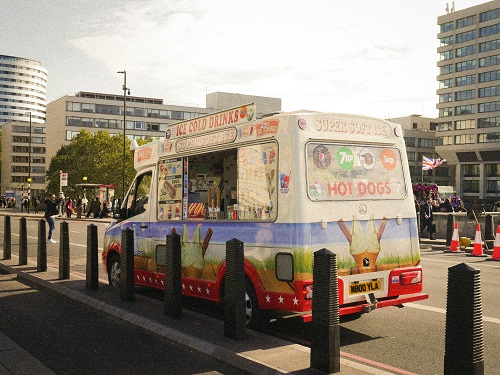Urban Gourmet Food Truck Business

Title of Business: Urban Gourmet Food Truck
Type: Trading
Key Products for Sale:
- Specialty burgers
- Gourmet tacos
- Artisanal sandwiches
- Accompanying sides like fries, salads, and beverages
Technology Considerations:
Mobile-friendly website or app for menu display and online orders
GPS-enabled system for tracking truck location
Social media platforms for marketing and customer engagement
Mobile payment solutions like M-Pesa for cashless transactions
Market for the Products:
- Urban professionals and students looking for quick, gourmet meals
- Event attendees and festival-goers
- Food enthusiasts seeking unique dining experiences
- Office complexes, universities, and busy street corners
Key Inputs into the Business:
- Materials: Fresh ingredients for food preparation, packaging materials
- Labour: Chef/cook, cashier, and driver
- Equipment: Food truck, cooking appliances (grill, stove, fryer), refrigeration unit, POS system
Product Preparation Process:
- Sourcing: Purchase fresh ingredients from local suppliers or wholesale markets
- Preparation: Prepare gourmet items in the food truck’s kitchen according to high-quality recipes
- Cooking: Cook meals on-site to ensure freshness and quality
- Serving: Serve food in eco-friendly packaging to customers at various urban locations
Quality Considerations:
- Ensure the use of fresh, high-quality ingredients
- Maintain high hygiene and cleanliness standards in food preparation
- Regularly update the menu to include seasonal and trendy items
- Provide excellent customer service to enhance the dining experience
Cost of Investment:
- Food Truck: KSh 40,000 – 80,000 (second-hand or locally built)
- Cooking Equipment: KSh 5,000 – 10,000 (grill, stove, fryer, etc.)
- Refrigeration Unit: KSh 5,000 – 10,000
- Packaging Materials: KSh 1,000 – 2,000
- Initial Stock of Ingredients: KSh 5,000 – 10,000
- Licenses and Permits: KSh 2,000 – 5,000
- Marketing: KSh 2,000 – 3,000
- Miscellaneous Costs: KSh 1,000 – 2,000
Total Estimated Initial Investment: KSh 60,000 – 122,000
Required Operational Infrastructure:
- A reliable food truck equipped with necessary kitchen appliances
- Secure storage space for ingredients and supplies
- Mobile POS system for processing payments
- Efficient logistics for sourcing ingredients and managing daily operations
Most Suitable or Viable Location for the Business:
High-traffic urban areas like office complexes, universities, shopping malls
Popular event venues and festivals
Busy street corners and food markets
Partnerships with local businesses and event organizers for strategic locations
Potential Sources of Investment Capital:
- Personal savings
- Small loans from family or friends
- Microfinance institutions
- Crowdfunding platforms
- Local government grants or subsidies for small businesses
Requirements for Effective Management:
- Culinary expertise to prepare gourmet food items
- Strong marketing skills to attract and retain customers
- Effective inventory management to ensure fresh ingredients
- Good customer service to build a loyal customer base
5, Basic accounting skills to manage finances and profitability
Role of Mobile Phone and ICT in the Business:
- Mobile-friendly website or app for displaying the menu and accepting orders
- GPS-enabled tracking system for customers to locate the food truck
- Social media platforms for marketing and engaging with customers
- Mobile payment solutions like M-Pesa for easy and secure transactions
Statutory Regulations and Licenses:
- Business registration with relevant local authorities
- Food handling certification from the local health department
- Compliance with local health and safety regulations
- Necessary permits for operating a mobile food truck
Pricing:
Specialty Burgers: KSh 400 – 600 each
Gourmet Tacos: KSh 300 – 500 each
Artisanal Sandwiches: KSh 350 – 550 each
Sides and Beverages: KSh 100 – 300 each
Profitability:
High margins due to premium pricing of gourmet items
Potential for high sales volume in busy urban locations
Ability to attract repeat customers through unique and high-quality offerings
Opportunities for catering and private event bookings
Next Steps to Take:
Conduct market research to identify the target customer base and optimal locations
Secure a food truck and necessary equipment
Develop a unique and appealing menu with high-quality recipes
Obtain necessary licenses and permits for the operation
Launch a marketing campaign to build brand awareness and attract customers
Establish relationships with local suppliers for fresh ingredients
Start operations and continuously gather customer feedback to improve offerings.

